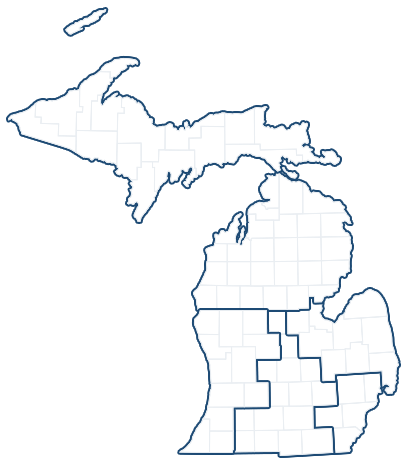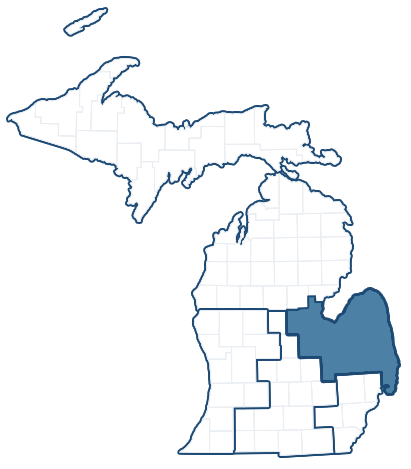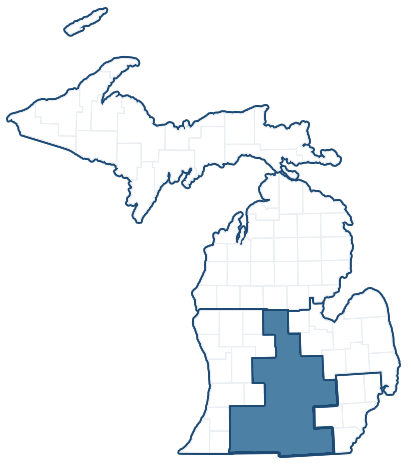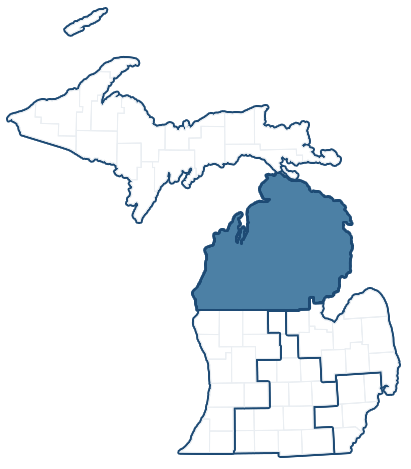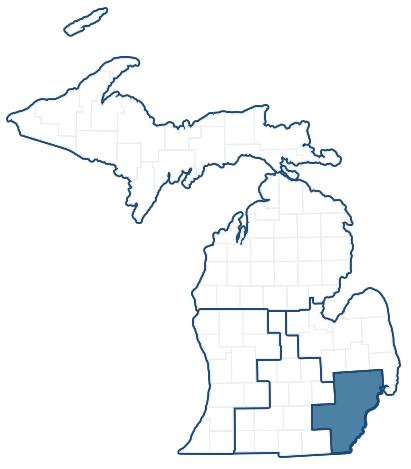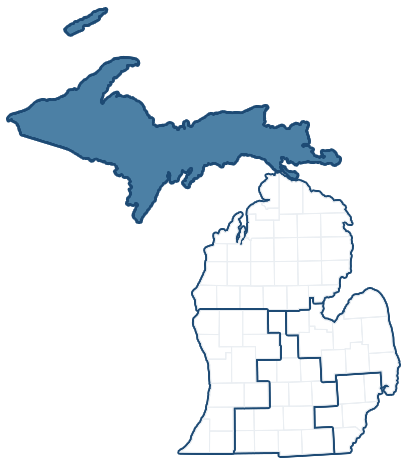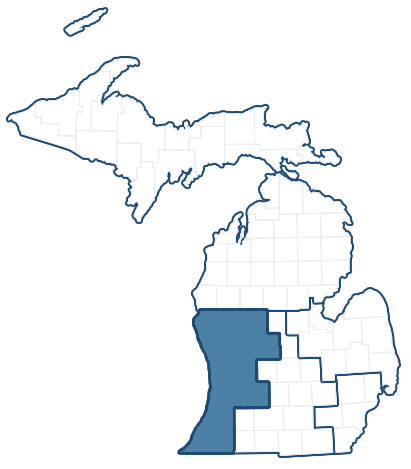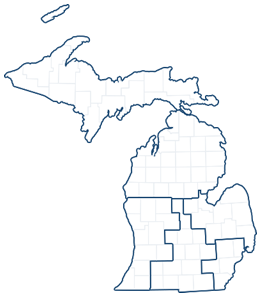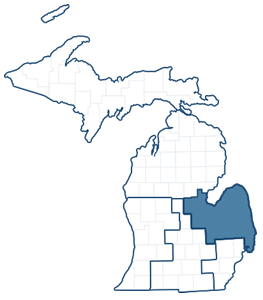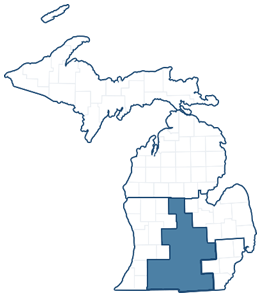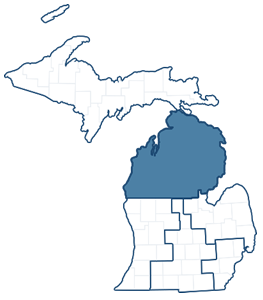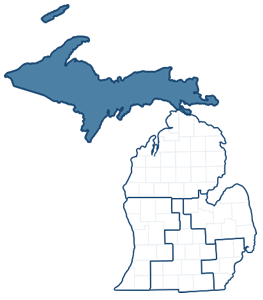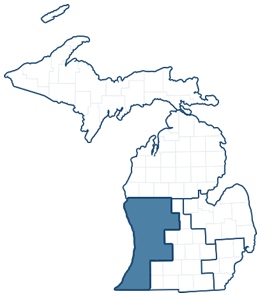Stabenow, Peters Highlight Need to Address High Water Levels in the Great Lakes
Monday, January 06, 2020Senators Ask for Funding Needed to Support Communities Affected by Flooding, Erosion, and Extreme Weather
WASHINGTON, DC – Senators Debbie Stabenow (D-MI) and Gary Peters (D-MI) urged the Department of the Army and the Office of Management and Budget to help Michigan communities effected by high water levels in the Great Lakes and inland waterways. Extreme weather, flooding, and erosion have led to damaged property, harbors, beaches, roads, and infrastructure in Michigan.
The Senators asked that the U.S. Army Corps of Engineers (USACE) allocate funding to address coastal erosion and dredging needs, provide technical assistance with floods and storms, and fund a study to coordinate strategy on protecting the Great Lakes.
“Communities and coastlines across Michigan have been battered by flooding and erosion as a result of record high water levels on the Great Lakes and inland waterways,” the lawmakers wrote. “It is imperative that the U.S. Army Corps of Engineers (USACE) continue to help our communities address these near- and long-term challenges that stem, in part, from the climate crisis.”
The full text of the letter can be found here and below.
December 19, 2019
|
The Honorable R.D. James Assistant Secretary of the Army - Civil Works Department of the Army 108 Army Pentagon Washington, DC 20310 |
The Honorable Mick Mulvaney Director Office of Management and Budget 725 17th Street, NW Washington, DC 20503 |
Dear Assistant Secretary James and Director Mulvaney:
Communities and coastlines across Michigan have been battered by flooding and erosion as a result of record high water levels on the Great Lakes and inland waterways. Extreme weather events have damaged property, harbors, beaches, roads, and critical infrastructure. It is imperative that the U.S. Army Corps of Engineers (USACE) continue to help our communities address these near- and long-term challenges that stem, in part, from the climate crisis. This begins with the USACE allocating funding in the FY2020 work plan for these and other actions that will help Michigan communities:
- Coastal Erosion
The USACE has the authority to help address significant erosion around ports and coastlines across Michigan. We understand this authority extends to Grand Haven, Grand Traverse Bay, Harrisville, Holland, Lexington, Ludington, Muskegon, New Buffalo and South Haven. We ask that sufficient funding be included in the work plan to enable the USACE to address erosion in these and any other areas of Michigan in which the USACE possesses the authority act.
- Maintenance Dredging
The Administration’s FY2020 budget contains significant gaps in funding to address dredging needs at harbors across Michigan. It is our understanding that there is a $4 million shortfall in the amount needed to dredge commercial harbors in Holland, Marquette, Monroe, and Ontonagon. In addition, another $8.42 million is needed to dredge 14 recreational harbors across the state, including: Arcadia, Charlevoix, Clinton River, Leland, Little Lake, New Buffalo, and Pentwater. We urge the USACE to include this additional funding in the work plan to ensure access to these harbors that are critical to our local and state economies.
- Technical Assistance
Robust funding is needed in the FY2020 work plan for the Flood Plain Management Services (FPMS), Planning Assistance to States (PAS), and Flood Control and Coastal Emergencies (FCCE) programs. These programs are critical to assisting communities across Michigan with planning needed to protect against extreme weather events and flooding. We understand that seven counties in Michigan are already receiving technical assistance from the USACE. The FPMS program alone is being utilized by the USACE to assist with flood and storm water studies in Antrim County, Detroit, Kentwood, Meridian Township, and Mt. Pleasant.
In addition to the FPMS, PAS, and FCCE programs, we ask that funding be included for the Tribal Partnership Program (TPP). In Michigan, the TPP program is currently being utilized for the Bay Mills Shoreline Erosion Study to develop solutions to protect Tribal lands and a known burial ground.
With the frequency and severity of extreme weather events projected to increase as a result of the climate crisis, the importance of programs like FPMS, SAP, TPP, and FCCE will only grow. Sufficient resources should be provided to these programs in the upcoming work plan to enable the USACE to provide much needed technical assistance to communities and Tribes across Michigan.
- Great Lakes Coastal Resiliency Study
We again join with calls from a bipartisan group of lawmakers across the Great Lakes region in urging the USACE to fund this study in the upcoming work plan.
The Great Lakes Coastal Resiliency Study, proposed by the USACE, in consultation with Great Lakes states, would be a first-of-its-kind effort to develop a coordinated strategy to manage and protect the Great Lakes and its 5,200-mile coastline from these threats. Proponents for the study include seven Great Lakes states, three USACE Districts (Chicago, Detroit, and Buffalo), and the USACE’s Great Lakes and Ohio River Division. It also has the support of the Great Lakes Commission and several federal agencies with missions in coastal management, including the National Oceanic and Atmospheric Administration and the U.S. Geological Survey.
Despite Congress formally authorizing the study as part of the America's Water Infrastructure Act of 2018 (Sec. 1219 of P.L. 115-270), the Administration did not include funding in last year’s work plan or budget request. To rectify this decision, we urge the USACE to allocate $1.2 million for the study in the FY2020 work plan.
Thank you both for considering these important requests.
Next Article Previous Article



